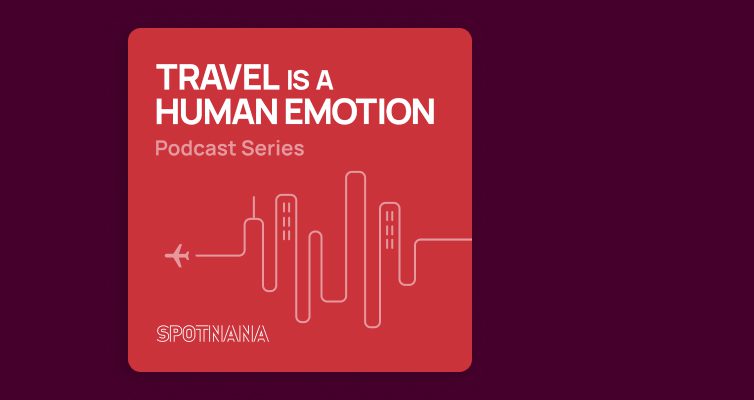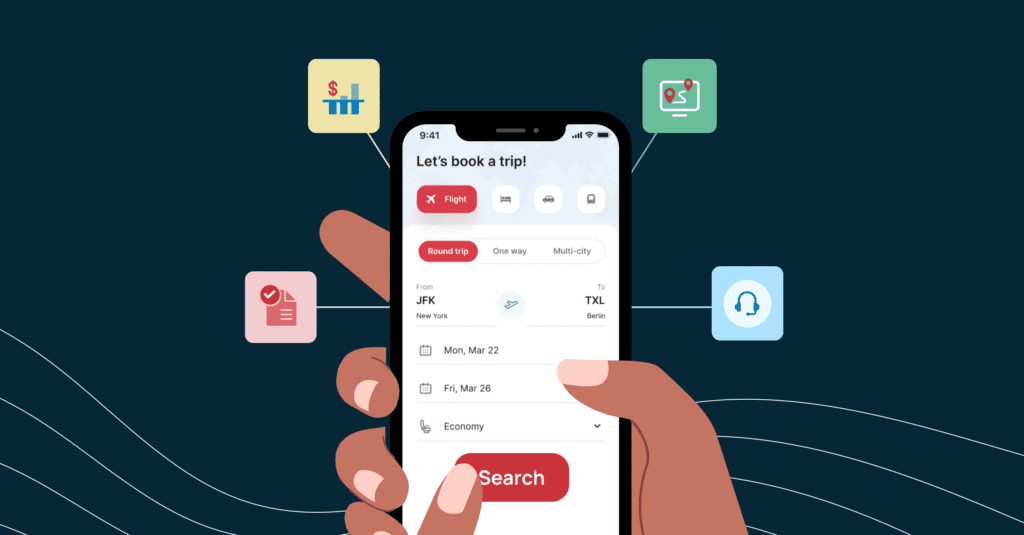Top misconceptions about business travel planning

Business travel is an exciting part of the employee experience, but travel managers must implement effective travel management policies so employees can enjoy successful trips.
Sometimes, decision-makers are held back by misconceptions about corporate travel planning and servicing. Read on to learn more about common misconceptions that prevent travel managers from providing better experiences to their travelers.
1. New distribution capability does not support servicing
New Distribution Capability (NDC) is a buzzy concept in the corporate travel management industry that’s all about bringing new retailing capabilities to travel distribution.
NDC is part of the effort to modernize airline retailing and distribution for corporate travelers. People can buy products, services, and bundled packages through third-parties instead of airline-owned portals.
With NDC, booking travel becomes more like online retail shopping and provides access to the lowest available fares directly from airlines. But, some travel managers are wary when it comes to NDC. The most common concerns are central to support.
Modern corporate travel management tools, however, support seamless self-service changes and cancellations once a flight is booked.
2. Travelers can only redeem unused airline ticket credits through a travel agent
Airlines award flight ticket credits when a flight is canceled, a traveler gets bumped from their flight, or a traveler cancels a refundable flight.
It can be a major challenge, however, for travelers to redeem these credits, since the process usually involves calling a travel agent or the airline directly. Travelers may also not even know that unused ticket credits are available for them, if that information is not tracked effectively.
Travelers are often stuck with hours-long waits to talk to a travel agent to rebook using the ticket credits they are entitled to.
Travel managers are used to antiquated processes and may not realize unused ticket credits can be tracked and redeemed through a modern corporate travel management platform. When a user is searching for a flight, they can apply that credit to their current booking with just one click.
This feature can save travel managers up to 5 percent on unused tickets and hours of their time on the phone.
3. Travelers can’t manage complex flight change scenarios on a self-service basis
Flight disruptions are a frustrating and unfortunate reality for business travelers.
Airlines often encourage travelers to turn to self-service options when things go wrong. Some aspects of this, such as self-check-in, are user-friendly.
When it comes to situations like rebooking itineraries, though, the process can be messy. When a person experiences a problem, troubleshooting is challenging. They’re often directed to speak to a support agent, which often means long wait times. Travelers can feel like it’s impossible to manage these problems on their own.
A modern corporate travel platform puts travelers in control of their trip. These tools offer apps and online booking tools that empower travelers to adjust any part of a trip from wherever they are, and without having to call a travel agent or airline representative.
Modern corporate travel platforms allow users to adjust trip dates, destinations, and more. Users never need to contact a travel agent, unless they want to.
4. Corporate travel is unnecessary in the digital age of remote work
During the Covid-19 pandemic, the corporate world went remote. Employees conducted work in their own homes. What were once on-site meetings became Zoom calls.
Remote work has remained a standard for many people after the pandemic came to an end, making some people wonder if corporate travel is still worth the cost.
The benefit of face-to-face meetings, however, can’t be denied. Your team members get the opportunity to meet with potential clients, investors, suppliers, and colleagues. They will be able to communicate clearly and make new connections that help meet your business’ goals.
Face-to-face requests are 34 times more effective than those conducted through email, making many business trips worth the travel.
5. It’s labor-intensive and time-consuming to identify the lowest-cost location for a group of people to meet
Arranging meetings for distributed groups, especially across various locations, can make finding cost-effective meeting sites difficult. Leveraging the right corporate travel platforms and strategies streamlines this process.
Modern meeting planning platforms compare important factors like flight costs, hotel prices, and carbon emissions across a range of possible meeting locations. Real-time data and recommendations aid decision-makers in finding ideal meeting locations that won’t break the bank, empowering travel managers to make informed decisions.
With the right technology, travel managers can efficiently assess options and make well-informed decisions that balance financial efficiency with a team’s practical requirements.
Business travel planning is easy with the right corporate travel management partner
There’s no denying that planning a business travel trip is time-consuming and sometimes challenging, but planning is a lot simpler with a corporate travel management partner.
When the tedious aspects of the planning process are automated and centralized in one location, you and your travelers get valuable time back.
Corporate travel management companies understand the value of business travel. Learn more about the benefits of corporate travel management.






